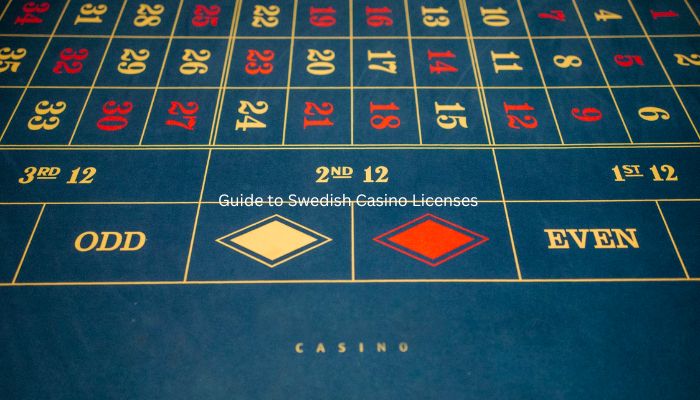The realm of online gambling is ever-evolving, and Sweden stands at the forefront with a robust regulatory framework governing casino licenses. As of 2023, the Swedish gambling landscape has undergone significant changes, shaping the opportunities and obligations for both local and international operators.
This comprehensive guide explores the intricacies of obtaining and maintaining a Swedish casino license, delving deeper into the legal landscape, licensing procedures, restrictions, anticipated reforms, and ultimately navigating the gambling landscape in Sweden.
Understanding the Regulatory Framework
The Swedish Gambling Act
At the heart of the Swedish gambling regime lies the Gambling Act, a legislative framework that governs all aspects of gambling services, including online, mobile, digital, and electronic forms. Enacted on January 1, 2019, the act establishes the rules and regulations for operators, ensuring a fair and transparent gambling environment.
Jurisdictional Scope
The Gambling Act draws a clear distinction based on the targeted market. Gambling services provided within Sweden, like the online casinos found at Casinojämförelse.se fall under its jurisdiction. However, it’s crucial to note that the act does not regulate gambling services not explicitly directed at the Swedish market, even if Swedish residents engage with such operators.
Navigating the Licensing Process
Licensing for International Operators
International operators seeking online commercial gambling or betting services in Sweden must apply for a casino license. Notably, a casino license applicant not resident or established in a country within the European Economic Area (EEA) appoints a physical representative residing in Sweden. This representative is empowered to act on behalf of the applicant when dealing with public authorities.
Server Location Requirements
One distinctive feature of the licensing process is the requirement for license holders to have their gambling system, including servers, located in Sweden. Exceptions to this rule include cases where the Swedish Gambling Authority has entered into agreements with other regulatory bodies, such as the Malta Gaming Authority, the Gibraltar Gaming Division, and the UK Gambling Commission.
Restrictions on Relevant Products
Beyond the licensing process, operators must adhere to specific restrictions governing relevant products supplied via online, mobile, digital, or electronic means.
- Payment Processing: Operators can only receive deposits through payment service providers in accordance with the Act on Payment Services.
- Currency Restrictions: All wagers or stakes must be displayed in SEK.
- Language Requirements: Relevant game information, including rules and odds, should be easily accessible in Swedish.
- ISP and Payment Blocking: The Swedish Gambling Authority can order internet and payment service providers to block access and transactions involving unlicensed gambling operations.
Betting Licenses and Terminal Placement
Betting licenses encompass both online and land-based betting. However, the act prohibits the placement of self-service betting terminals in betting shops. Instead, players must pay stakes over the counter. Private operators can also obtain licenses for land-based commercial gambling, including goods gambling machines, provided certain conditions are met.
Enforcement and Liability
Operator Liability and Criminal Sanctions
Operators are held liable for all services provided to players. Unauthorized or unlicensed gambling providers, if found guilty, may face fines or imprisonment. Payment service providers may be ordered to block transactions associated with unlicensed gambling. However, players participating in unlicensed gambling are not subject to sanctions, although they may be required to pay taxes on their winnings.
Enforcement Actions and Track Record
The Swedish Gambling Authority actively enforces compliance. Licensed operators failing their obligations may face warnings, penalties, or casino license revocations. The authority has issued numerous decisions, with fines reaching as high as 100 million SEK. Unlicensed gambling operations face criminal sanctions, and the authority actively pursues actions against them, including police reports.
Impact of Non-National Laws
As a member of the European Union, Sweden is influenced by EU decisions. However, the new Gambling Act reduces reliance on EU and case laws.
Gambling Debts and Regulatory Authority’s Track Record
Gambling debts are generally enforceable under civil legislation, with the caveat that gambling on credit is not permitted. The regulatory authority has a track record of initiating numerous supervisory cases, issuing penalties, and actively pursuing actions against illegal operators.
Anticipated Reforms
The Swedish Government has proposed updates to the gambling rules, aiming to introduce a B2B license, implement stricter laws against illegal gambling promotion, adjust marketing rules, and impose additional requirements for information sharing. These changes are expected to take effect in 2023, pending parliamentary approval.
Conclusion: Navigating the Swedish Gambling Landscape
As of 2023, obtaining a Swedish casino license requires a nuanced understanding of the legal framework, licensing procedures, and ongoing reforms. Operators entering or operating in the Swedish market must meticulously adhere to the regulations outlined in the Gambling Act. With the anticipated reforms, including introducing a B2B license and stricter rules, the Swedish gambling landscape continues evolving, offering challenges and opportunities for those navigating its intricacies. Stay informed, stay compliant, and unlock the doors to success in the dynamic world of Swedish online gambling.




